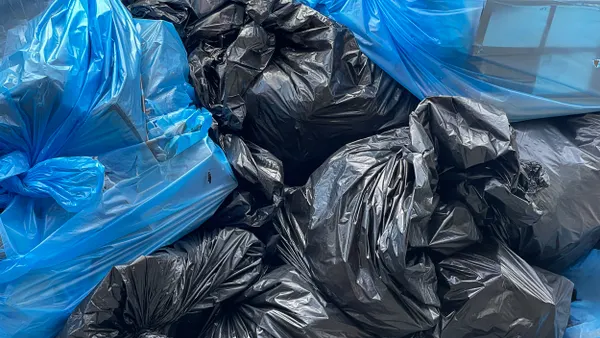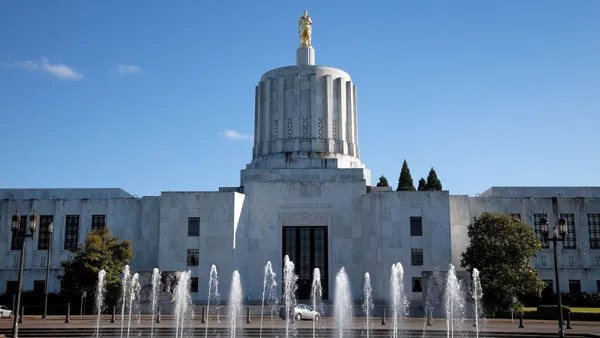Dive Brief:
- The Los Angeles City Council voted unanimously on Sept. 6 in favor of a motion asking LA Sanitation (LASAN) to explore the feasibility of bin sharing or other cost-saving ideas for the approximately 85,000 customers in the RecycLA franchise system.
- According to Councilmember Mitchell Englander, many smaller businesses had been doing this prior to the new system. "I've had some conversations with some of the providers — including the one that services my district, Waste Management — that said that they would be willing to work with businesses in bin sharing and that it was the right thing to do," said Englander before the vote. He also said Athens Services was supportive of the concept, calling it "very reasonable."
- Englander said that LASAN will be asked to report back on this concept "right away" to help address the many calls that local officials have been receiving from small business owners.
Dive Insight:
By multiple accounts, the operational side of implementing the largest franchise system of its kind in the country has been fairly smooth. Though, as foreshadowed by a pending lawsuit from the Apartment Owners Association of California earlier this summer, the RecycLA system has also raised cost concerns. While the system means many customers now have access to full recycling programs for the first time, with higher environmental and labor standards required for their service providers, that has been little consolation for the small businesses seeing big rate increases.
This motion was introduced in early August as a response to those concerns and has moved quickly with unanimous support so far. Whether or not the contracts are set up to handle bin sharing or other potential cost reduction ideas is still an open question. Voluntary support from Waste Management and Athens, which service five of the 11 RecycLA zones, may help add more weight to the idea. Other service providers and labor advocates involved in creating the system have been less receptive to immediate changes, but may come along depending on what LASAN finds in its analysis.
This franchise plan has been in the works for many years, but began attracting much more attention once it received final approval in December 2016. Advocates and officials in cities such as New York, Philadelphia, Boston, Long Beach and elsewhere are also at various stages of considering their own franchise systems. The concept remains controversial among some of the industry's newer or smaller companies, though is seen as beneficial by its largest players.











